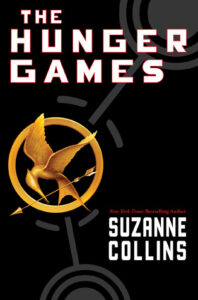The Bechdel Test is a simple but effective way to assess the representation of women in fiction. It asks three questions:
- Does the work have at least two named female characters?
- Do the female characters talk to each other?
- Do they talk about something other than a man?
It’s named after Alison Bechdel, the cartoonist who first proposed it in her comic strip Dykes to Watch Out For. Bechdel intended the test to be a lighthearted way to point out the lack of female representation in mainstream media, but it has since become a widely used tool for evaluating gender representation in fiction.
While the Bechdel Test is not a perfect measure of gender equality, it’s a useful starting point for finding books that feature complex and well-developed female characters.
Here are a few examples of books that pass the Bechdel Test:
- Circe by Madeline Miller

- The Handmaid’s Tale by Margaret Atwood
- My Brilliant Friend by Elena Ferrante
- Sula by Toni Morrison
- The Left Hand of Darkness by Ursula K. Le Guin
- The Color Purple by Alice Walker
- The Hunger Games by Suzanne Collins
- The Hate U Give by Angie Thomas
- Persuasion by Jane Austen
- Little Women by Louisa May Alcott
- Pride and Prejudice by Jane Austen
- Anne of Green Gables by L.M. Montgomery
- The Secret Life of Bees by Sue Monk Kidd
These books feature a wide range of female characters, from strong and independent women to those who are struggling to find their place in the world. They also explore a variety of topics, including love, loss, friendship, family, and identity.
If you’re looking for books that feature complex and well-developed female characters, I encourage you to check out some of the titles on this list. And if you find a book that you love, be sure to share it with your friends and family!
Why is it important to read books that pass the Bechdel Test?
Reading books that pass the Bechdel Test is important for a number of reasons. First, it helps to expose us to a wider range of female characters. When we read books that feature only one female character, or female characters who only talk about men, we get a very limited view of womanhood. But when we read books that pass the Bechdel Test, we get to see women from all walks of life, with all sorts of different experiences and perspectives.
Second, reading books that pass the Bechdel Test helps to challenge gender stereotypes. When we see women talking about things other than men, we start to realize that they are more than just romantic partners, mothers, and caregivers. They are also complex individuals with their own hopes, dreams, and goals.
Finally, reading books that pass the Bechdel Test is simply good storytelling. Books that feature well-developed female characters are more engaging and interesting to read. They also tend to be more realistic, as they reflect the diversity of the real world.
So next time you’re looking for a good book to read, be sure to check out one that passes the Bechdel Test.